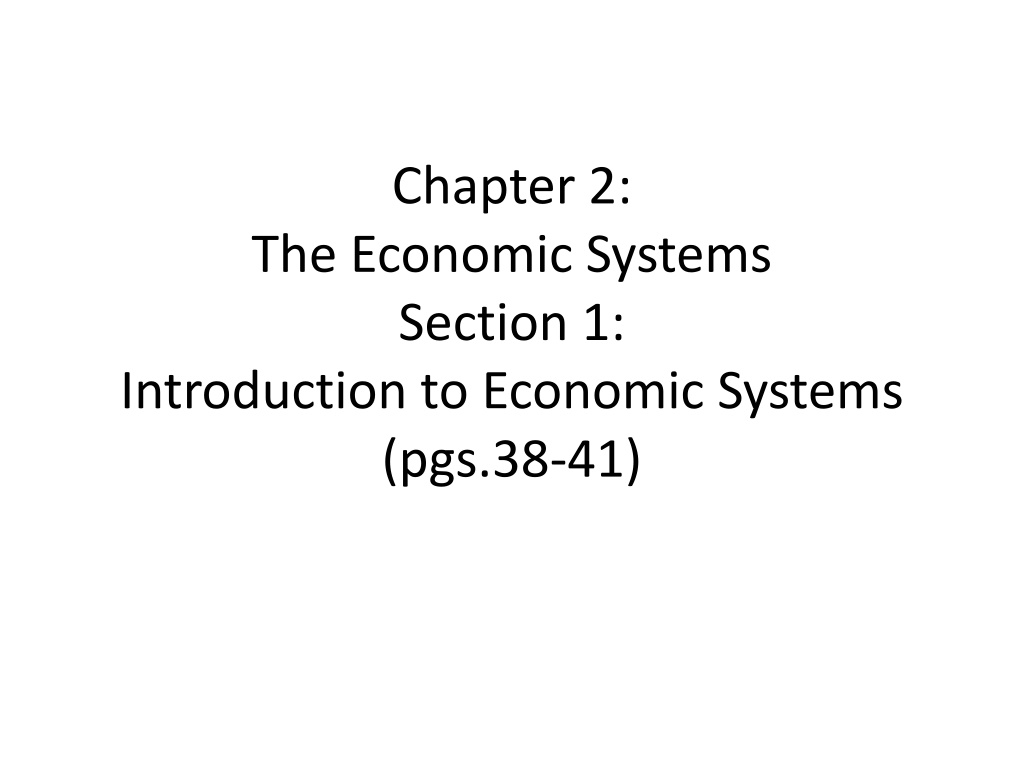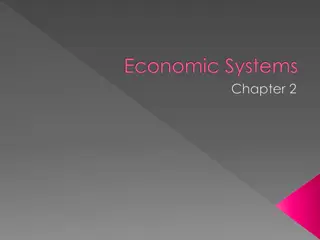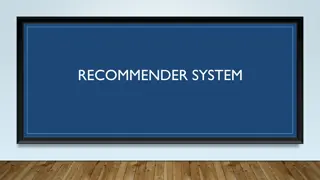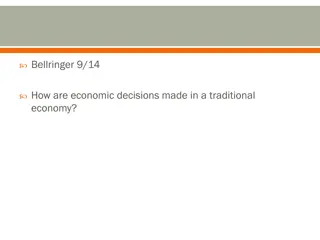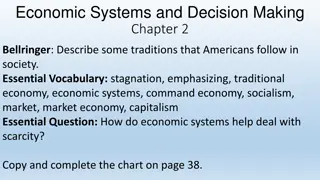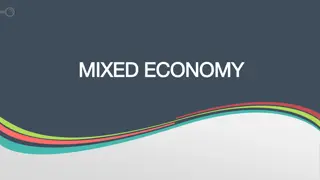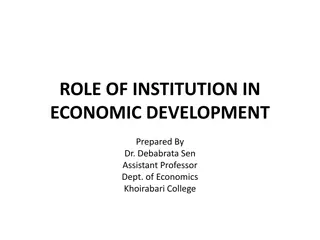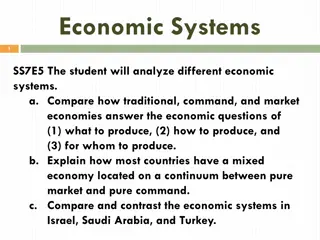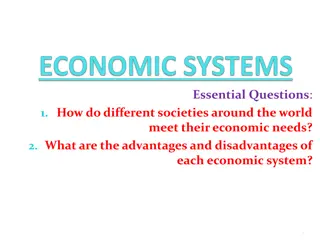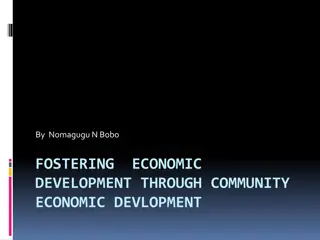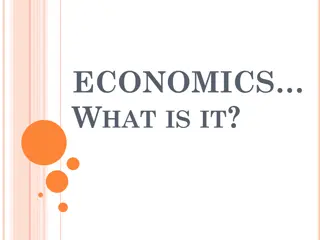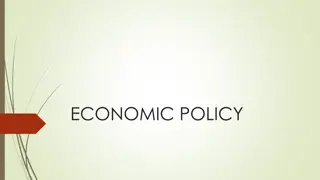Understanding Different Economic Systems
Introduction to economic systems reveals how societies address scarcity by determining what to produce, how to produce, and for whom. Traditional, command, market, and mixed economies are explored, highlighting their distinct approaches. Traditional economies rely on customs, command economies are government-controlled, while market economies prioritize individual choice. Advantages and limitations of each system are discussed, emphasizing the critical role they play in shaping societal functions.
Download Presentation

Please find below an Image/Link to download the presentation.
The content on the website is provided AS IS for your information and personal use only. It may not be sold, licensed, or shared on other websites without obtaining consent from the author. Download presentation by click this link. If you encounter any issues during the download, it is possible that the publisher has removed the file from their server.
E N D
Presentation Transcript
Chapter 2: The Economic Systems Section 1: Introduction to Economic Systems (pgs.38-41)
Types of Economic Systems There is no such thing as a Utopia, every society must face scarcity and answer the three questions: What should be produced?, How should it be produced?, & For whom will it be produced? The answers to these questions shape the economic system a society has. An economic system is the way a society uses its scare resources to satisfy people s unlimited wants. The economic systems that you will learn about in this chapter are traditional economy, command economy, market economy, and mixed economies. http://comps.canstockphoto.com/can-stock-photo_csp11730725.jpg
Traditional Economy This is an economic system in which families, clans, or tribes make economic decisions based on customs and beliefs that have been handed down from generation to generation. Examples of this would be tribal societies where men hunt and women trend crops. http://www.buzzle.com/img/articleImages/506016-43515-14.jpg
Command Economy In this type of economy the government decides what goods and services will be produced, how they will be produced, and how they will be distributed. The wants of consumers are rarely considered and the government owns the means of production all the resources, and factories. Examples of this was the former U.S.S.R. and current North Korea and Cuba. http://www.harpercollege.edu/mhealy/geogres/maps/worldgif/wwcommand.gif
Market Economy http://gerardlameiro.com/wp-content/uploads/2010/01/gerard_lameiro_characteristics480.jpg This economic system is based on individual choice not government directives. The consumers and producers drive the economy. Consumers are free to spend their money as they wish, to enter into business, or sell their labor to whomever they want. Producers decide what goods or services they will offer. They make choices about how to use their limited resources to earn the most money. In a market economy, individuals act in their own self-interest when they make economic choices.
A Deeper Look Into Traditional Economies http://www.virtualclassroom.net/tvc/econ/economic_systems/img004.GIF Since the earliest times, all societies were traditional economies. They serve the main purpose of survival very well, h/w it tends to be inefficient and does not adapt to change.
Advantages of Traditional Economies It answers the 3 economic questions very well. A traditional society produces what best ensures its survival. The methods of production are the same as they have always been. Systems of distribution are also determined by custom and tradition. There is little disagreement over economic goals and roles. http://www.econedlink.org/lessons/images_lessons/795_inuithunt1.jpg
Disadvantages of Traditional Economies http://f.tqn.com/y/useconomy/1/W/7/5/-/-/80955696.jpg B/c it is based on ritual and custom there is much resistance to change, t/f they are less productive. While traditionally defined roles eliminate conflict, they also prevent people from doing the jobs they want to do or are best suited to do. This means that people acquire less material wealth and have a lower standard of living.
Under Pressure to Change http://www.namibiahuntingsafaris.com/wp-content/uploads/2012/03/namibia-hunting-map.jpg Around the world, traditional economies are under pressure from the forces of change. Subsistence farmers grow just enough for there own families, but now they grow more. Example the Kavango people in Namibia are leaving there homeland and changing.
